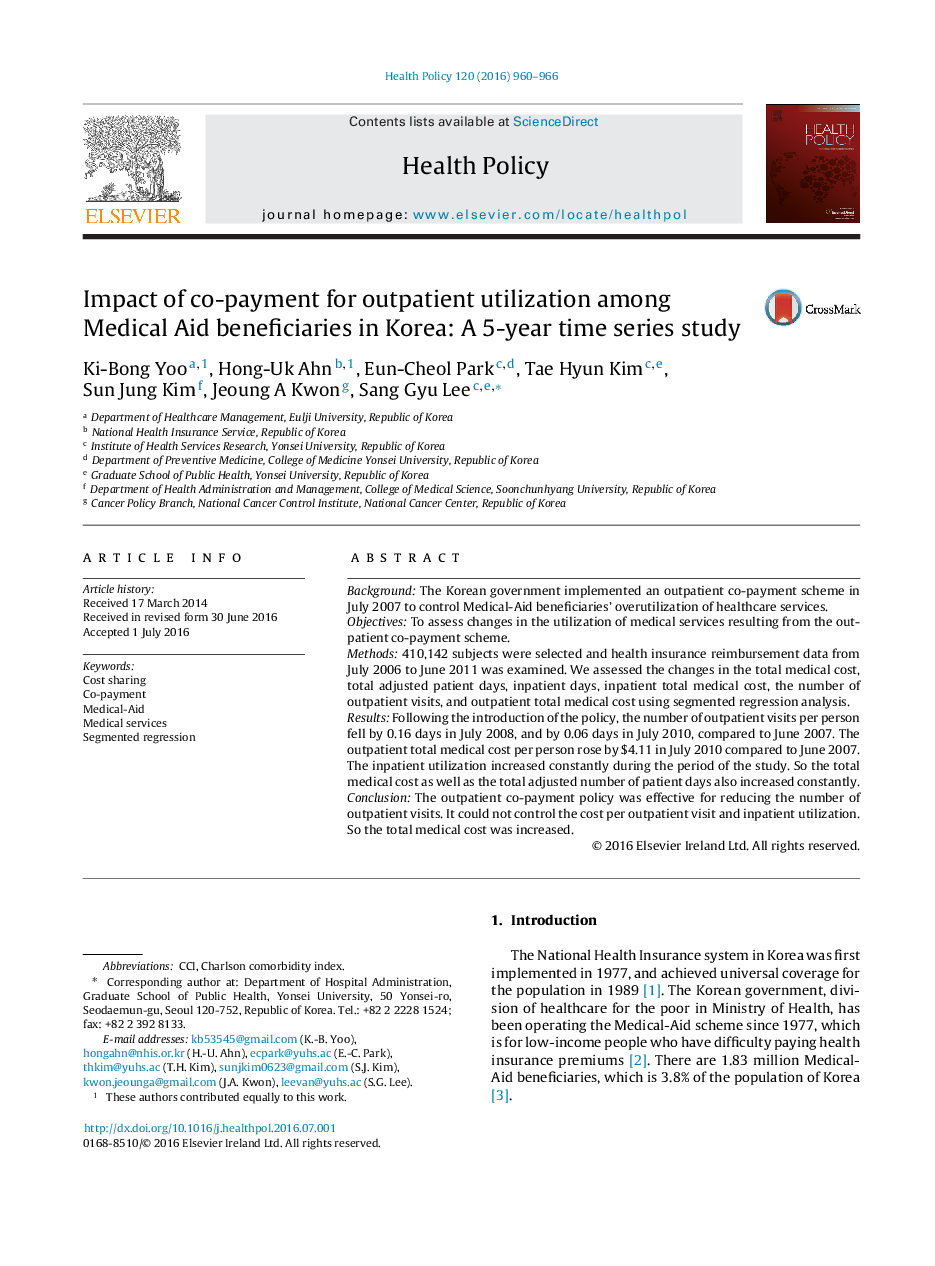| کد مقاله | کد نشریه | سال انتشار | مقاله انگلیسی | نسخه تمام متن |
|---|---|---|---|---|
| 4197752 | 1278979 | 2016 | 7 صفحه PDF | دانلود رایگان |
• The Korean government implemented an outpatient co-payment scheme in July 2007 to control Medical Aid beneficiaries’ overutilization of healthcare services.
• We assessed changes in the utilization of medical services resulting from the outpatient co-payment scheme.
• The outpatient co-payment policy was effective for reducing the number of outpatient visits
• The policy could not control the outpatient total cost and inpatient utilization.
• As patients can easily use inpatient services without a referral in Korea, it was not effective to introduce outpatient co-payment scheme only in outpatient area.
BackgroundThe Korean government implemented an outpatient co-payment scheme in July 2007 to control Medical-Aid beneficiaries’ overutilization of healthcare services.ObjectivesTo assess changes in the utilization of medical services resulting from the outpatient co-payment scheme.Methods410,142 subjects were selected and health insurance reimbursement data from July 2006 to June 2011 was examined. We assessed the changes in the total medical cost, total adjusted patient days, inpatient days, inpatient total medical cost, the number of outpatient visits, and outpatient total medical cost using segmented regression analysis.ResultsFollowing the introduction of the policy, the number of outpatient visits per person fell by 0.16 days in July 2008, and by 0.06 days in July 2010, compared to June 2007. The outpatient total medical cost per person rose by $4.11 in July 2010 compared to June 2007. The inpatient utilization increased constantly during the period of the study. So the total medical cost as well as the total adjusted number of patient days also increased constantly.ConclusionThe outpatient co-payment policy was effective for reducing the number of outpatient visits. It could not control the cost per outpatient visit and inpatient utilization. So the total medical cost was increased.
Journal: Health Policy - Volume 120, Issue 8, August 2016, Pages 960–966
